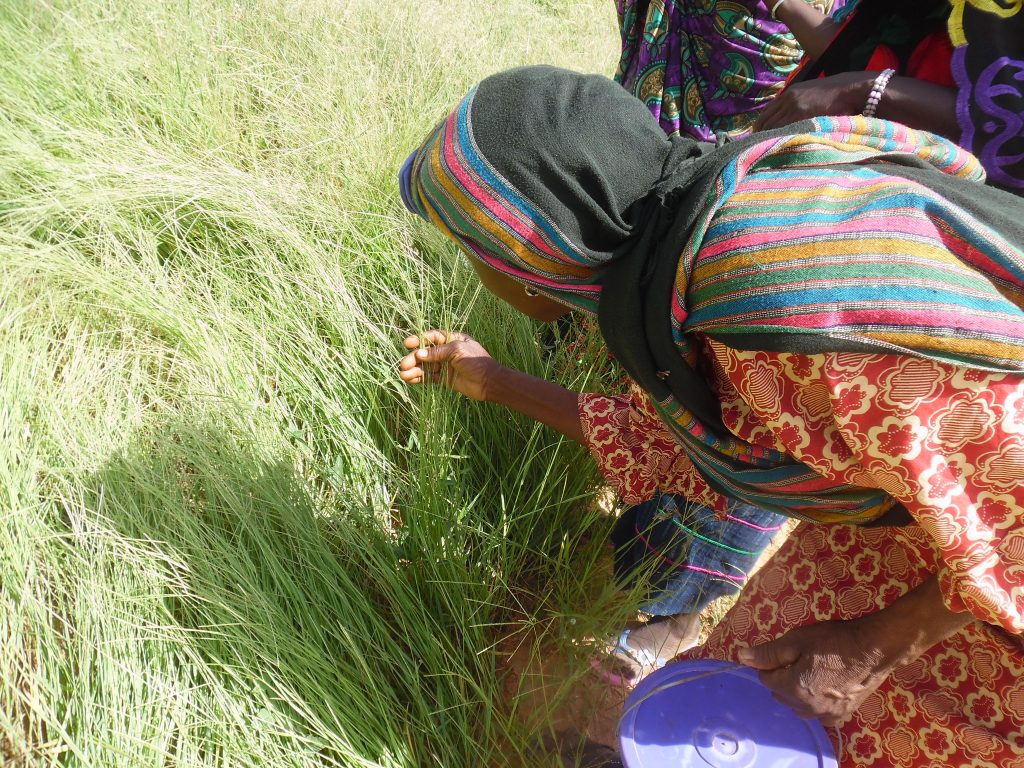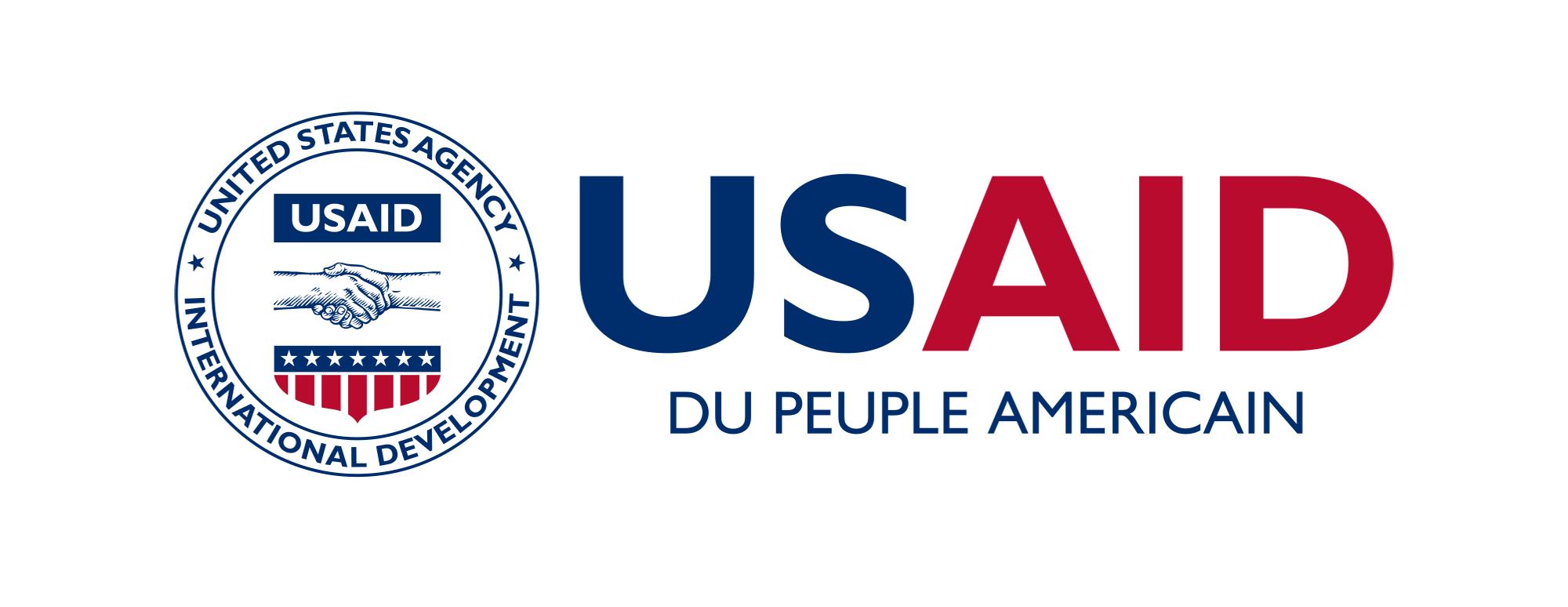USAID / Prosper Africa co-investment grant to Yolélé and Mali Shi SA will improve smallholder value chains and create 13,700 jobs in Mali
Bamako, Mali —The ancient grain fonio has been grown as a subsistence crop in West Africa for over 5,000 years. A new venture in Mali called Sustainable African Foods (SAF) is turning fonio into a cash crop to provide a sustainable source of income for farmers in the Sahel region, one of the world’s most vulnerable areas.
SAF is an agro-processing operation being built by two companies: Yolélé, Chef Pierre Thiam’s U.S.-based West African food company, and Mali Shi SA, Mali’s leading shea butter manufacturer with a supply network of over 23,000 West African smallholder farmers, most of them women. A co-investment grant of $1.98 million through the U.S. Agency for International Development’s (USAID) West Africa Trade & Investment Hub (Trade Hub) will be leveraged by Yolélé/Mali Shi SA to make the companies’ venture possible. The funding comes directly from Prosper Africa, a U.S. Government initiative that is increasing two-way trade between the United States and Africa.
- Fonio is a drought-tolerant, gluten-free, nutritional powerhouse that can be used like any other grain. Since 2017, Yolélé has been sharing the ancient West African grain in the United States and is now expanding internationally.
- Prosper Africa’s $1.9 co-investment grant, coordinated through the USAID Trade Hub, supports Yolélé/Mali Shi SA’s plans for U.S. market development and promotion, supply chain development, and the establishment of a new Mali-based processing center.
- As part of its co-investment partnership with the USAID Trade Hub, Yolélé/Mali Shi will leverage an additional $11.6 million from private sources to ensure SAF’s success.
- SAF addresses 11 of the 17 UN Sustainable Development Goals, including (1) No Poverty (2) Zero Hunger, and (9) Industry, Innovation, and Infrastructure.
Through SAF, Yolélé/Mali Shi will build a supply chain that traceably connects smallholder farmers living in extreme poverty with local and global markets for biodiverse, climate-resilient crops through efficient processing. The Prosper Africa-supported project is expected to create 13,714 agricultural jobs in Mali, and $4.5 million in collective smallholder sales in the next 2 years.
“Efficient processing has always been the missing link preventing farmers from earning livelihoods from fonio,” says Pierre Thiam, co-founder of Yolélé. “Fonio is easy for smallholders to grow, but turning it into food is hard! We devoted a lot of resources to find a technical solution to industrial-scale processing, and a strong local partner at the source. SAF can deliver Global Food Safety Initiative-compliant fonio, millet, and sorghum for flexible applications to major food manufacturers. That changes the landscape in terms of farmers’ incomes and traceable impact at scale.”

A woman in the town of Douentza (Mopti region) inspects a fonio plant to determine its readiness for harvesting.
She participated in a training on alternative agronomic practices.
The success of the project will be key to Yolélé earning $10 million in sales by the end of its 2.5-year USAID Trade Hub co-investment partnership, driven by expanded distribution for its snacks as well as other fonio-based products in retail, foodservice, and industrial channels. At the end of the partnership, farmers within Yolélé/Mali Shi’s grower network will be earning a sustainable income from fonio sales to supplement their other farming activities, increasing the family’s cash income by an estimated 85 percent.
“Providing multiple sources of income for the farmers in our growing network has a huge impact on family life and rural landscape,” said Simballa Sylla, the CEO of Mali Shi. “It makes financial sense for farmers to engage in sustainable, biodiverse, multi-crop rotations only if they have customers for their harvests. SAF is that customer, an element that has been missing for smallholders in the Sahel.”
The Trade Hub’s co-investment partnership with Yolélé/Mali Shi marks its first in Mali.
“Mali is ripe with opportunities to support economic growth through private investment, create long-term jobs for smallholder farmers, and increase exports of products such as fonio to the United States,” says Frantz Tavares, Public-Private Partnership Manager for the USAID Trade Hub. “I expect our project with Yolélé/Mali Shi will prove this and encourage more investment into Mali’s high-potential businesses.”
About the Trade Hub: The West Africa Trade & Investment Hub (Trade Hub) is a USAID-funded initiative that catalyzes economic growth through co-investing with the private sector to generate new investment, create new jobs, and increase the value of regional and international exports in West Africa.
About USAID: Le United States Agency for International Development (USAID) est la principale agence du gouvernement américain qui œuvre pour mettre fin à l'extrême pauvreté dans le monde et permettre aux sociétés résilientes et démocratiques de réaliser leur potentialités.
About Prosper Africa: Prosper Africa est l'initiative du gouvernement américain visant à augmenter de manière substantielle le commerce et les investissements bilatéraux entre les États-Unis et l'Afrique. L'initiative fait appel aux services et aux ressources de part et d’autres le gouvernement américain pour aider les entreprises et les investisseurs à obtenir des informations sur le marché, à accéder à un soutien commercial et à explorer les opportunités de financement.
About Yolélé: Yolélé is a purpose-driven African food company based in the United States. Yolélé brings underutilized African ingredients like fonio to global tables in value-added products that resonate with international audiences. Yolélé is currently available at over 2,000 grocery stores across the United States, including Whole Foods Market and Target Superstores.
About Mali Shi: Mali Shi is a Malian agro-processor that is part of the OMNIUM Mali Group, an industrial conglomerate operating in Mali for more than 20 years. It operates an industrial-scale manufacturing facility—the only one of its kind in Mali—to supply shea to the world’s leading shea butter marketers. Its mission is to transform local raw materials into value-added agricultural products through sustainable partnerships with rural production organizations, and the company provides income to tens of thousands of women through its proprietary sourcing operations.

